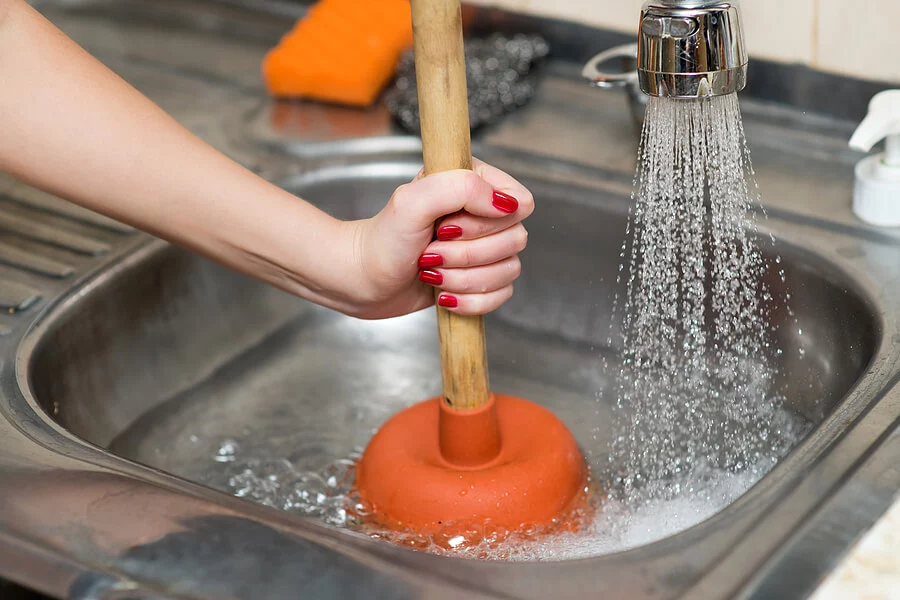Table of Contents
Key Takeaways
- Regular drain maintenance can prevent costly repairs and clogs.
- Home remedies and routine professional services are effective for drain cleaning.
- Understanding common causes of drain clogs can help maintain a healthy drainage system.
- Eco-friendly methods and products are available for safe drain cleaning.
Introduction to Drain Cleaning
Drains are essential to any household, yet they are often neglected until they pose a problem. The consequences of ignoring drain issues can be severe, from water damage to costly repairs. Imagine the inconvenience of a clogged kitchen sink while preparing meals or a backed-up bathroom drain during your morning routine. Regular drain cleaning Marietta is crucial to maintaining smooth-functioning plumbing and avoiding unexpected blockages. This article dives into various techniques for effective drain cleaning, ensuring your home stays trouble-free. Learn why keeping your drains clean is vital for your household’s health and efficiency.
Common Causes of Drain Clogs
Before diving into cleaning techniques, it’s essential to identify what often causes clogs. Most homeowners deal with blockages due to grease buildup, which happens when cooking oils and fats are poured down the sink. Over time, these substances solidify and stick to the pipe walls, causing significant clogs. Hair is another frequent culprit, especially in bathroom drains. Soap scum combined with hair can form stubborn clogs. Food particles, especially fibrous vegetables, and starchy foods do not decompose well, leading to kitchen drain issues. Awareness of these causes can help you implement preventative measures to clear your drains. Homeowners should also be cautious of bathroom items like cotton swabs and feminine hygiene products that can easily cause blockages, making it essential to dispose of them properly.
Preventative Measures for Drain Maintenance
Preventing issues by keeping drains clear is more effective than treating them after they occur. Using drain screens or filters is an efficient way to avoid problems. These simple devices sit over your drain openings and catch food particles, hair, and other debris before they can enter the pipes. Regularly cleaning these screens can significantly reduce the chances of clogs. Another preventive practice is running hot water through your drains regularly. Heat helps dissolve any grease or soap scum that may be starting to build up in the pipes. After using the sink for washing dishes or hands, let the hot water run for a few extra seconds. According to a study, consistent maintenance reduces the likelihood of severe clogs, ensuring a long-lasting plumbing system.
Additionally, avoid pouring grease and coffee grounds down the sink, as they can lead to blockages over time. Instead, dispose of these substances in the trash or compost bin. Establishing these habits can keep your drains in optimal condition and save on unnecessary plumbing costs.
When to Call a Professional
While DIY methods are great for minor issues, some require professional intervention. If you experience recurring clogs or slow drains, it’s time to seek expert help. Professionals have advanced tools and techniques to deal with severe blockages effectively, such as hydro-jetting and drain snakes. Hydro-jetting involves using a high-pressure water jet to clean the inside of the pipes, removing all debris and buildup, which is particularly effective for stubborn grease or scale buildup. Drain snakes, used by professionals, can navigate through complex piping systems to reach and remove clogs that are difficult to access with a household snake. Moreover, experts can perform a camera inspection to pinpoint the specific location and reason for the obstruction, guaranteeing that it is completely fixed. Employing a specialist might appear costly at first, but it can prevent the high expenses and inconveniences of sudden plumbing fixes.
Signs Your Drain Needs Immediate Attention
Knowing when a drain needs immediate attention can save you from significant plumbing disasters. Strange noises like gurgling or bubbling often indicate a blockage or venting issue. Unpleasant odors from the drain can signal trapped food particles, grease, or even a sewer backup. Water pooling around drains or slow drainage indicates a clog needing immediate resolution. Dealing with these problems quickly can stop additional harm and expensive fixes. Neglecting these signs could result in increased blockages, pipe deterioration, and potential water harm to your property. While a store-bought drain cleaner can provide a short-term solution, it’s recommended to seek help from a professional if the issue continues. Frequently checking your plumbing and being mindful of these indicators can guarantee a problem-free home and prolong the lifespan of your drainage system.
Final Thoughts on Drain Cleaning
Regular maintenance and awareness are crucial to preventing drain issues. Employing a combination of DIY methods and professional services ensures your drains remain precise and efficient. Remember, ecological practices also contribute positively to the environment. By staying informed and proactive, you can maintain a smoothly running home. Simple habits, such as avoiding pouring grease down the sink, using drain screens, and opting for eco-friendly cleaning products, can significantly affect your plumbing system’s longevity. Be mindful of what goes down your drains, and don’t hesitate to call in professionals when needed. Taking care of a clean and efficient drainage system is a valuable investment in the well-being and serenity of your home, protecting you from costly and unforeseen plumbing problems.

